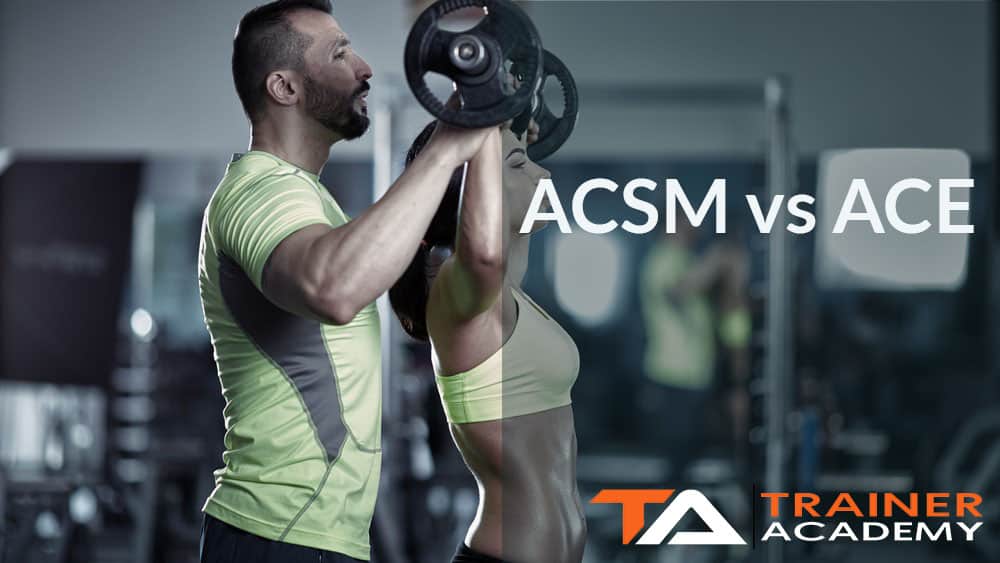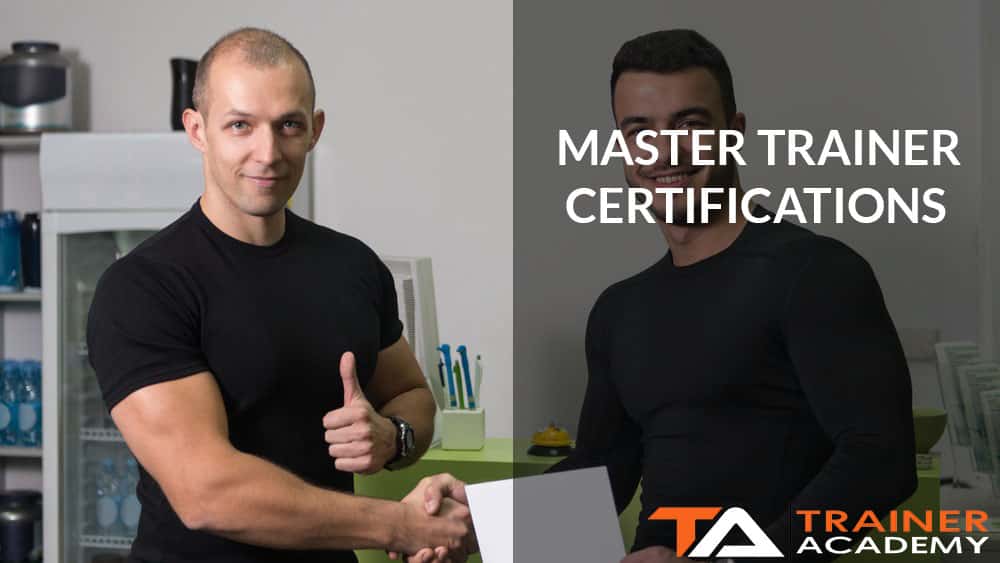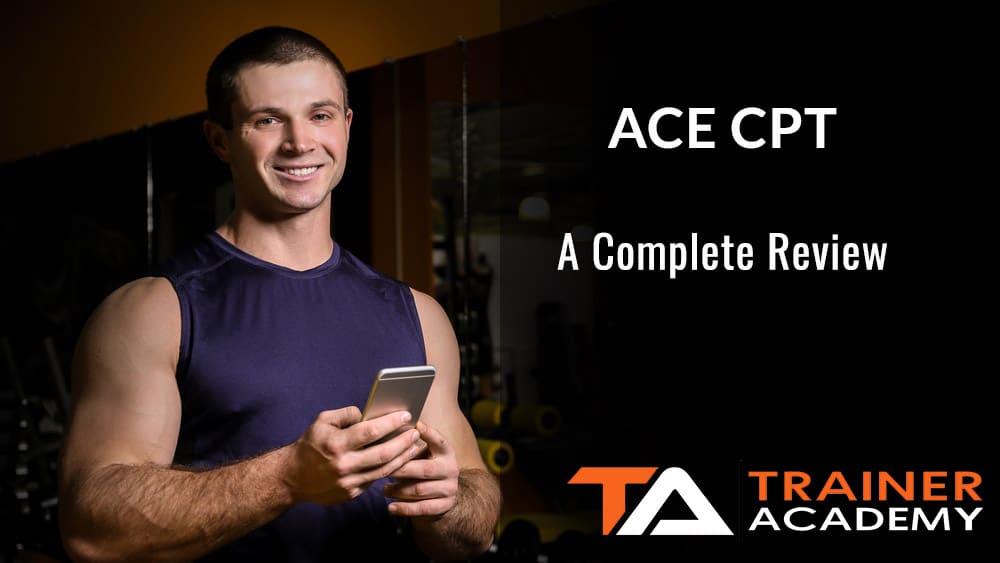Hey everybody, and welcome to our Trainer Academy Best Health Coach Certificate comparison article.
In this article, we’re going to take a look at seven of our favorite and most recommended health coaching qualifications, and provide some insight, facts, and figures.
In this article, we critically review the content, test prep materials, and exam for the top health coaching certifications, including:
- The top health coaching certification courses
- The definition of “health coaching”
- The quality and cost of the study programs
- Average incomes for future health coaches
We promise that you will be able to make the best decision for your career as a health coach after reading this article.
Without further ado, let’s dive into the article.
We highly recommend that you take our helpful quiz to find the best health coach certification for you.
Exclusive TA Offers |
||
Most Popular Cert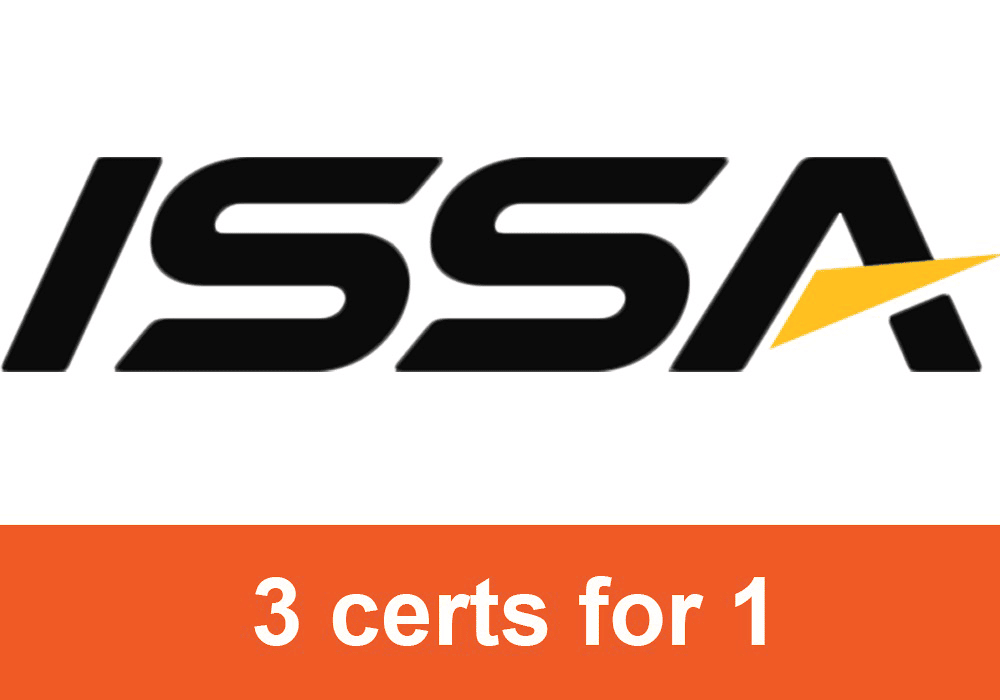 | Great Option | Best Cert for you?  |
Good Option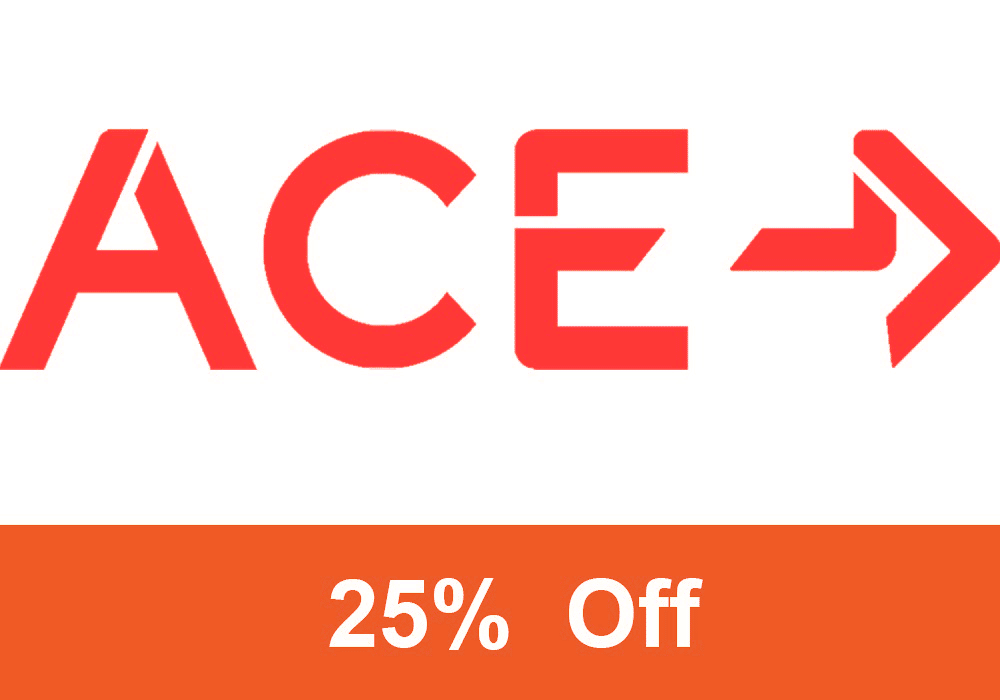 | Good Option | Good Option |
Why are we qualified to recommend the top health coach certifications?
The Trainer Academy staff of fitness experts includes health coaches certified through the below-listed organizations, along with many other fitness credentials.
We’ve worked as health coaches, nutritionists, and in many other fitness-related careers throughout the industry, so we have a complete picture of the health and wellness sphere and the challenges involved.
Our team also knows which certifications employers like to see on a resume, and we’ve examined the quality of each of the certifications in this article to vet them properly, so you know what you’re getting into with each one.
Our Top Health Coach Certification Pick
ISSA Health Coach Certification Program
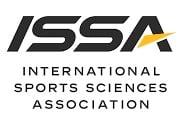
- The #1 rated and reviewed certification program
- Wide variety of other certifications and specializations
- Excellent bundle with Nutrition Certification
- Students who pass final exam are set up with a free professional website
A Quick Look at the Best Health Coach Certifications
- Best overall value: ISSA Health Coach – International Sports Sciences Association
- Best flexible options: ACE Certified Health Coach – The American Council on Exercise
- Most respected: NASM Certified Wellness Coach – National Academy of Sports Medicine
- Best holistic approach: PN Level 2 Health Coach – Precision Nutrition
- Best for health care practitioners: NSHC Certification – National Society of Health Coaches
- Best accredited option: Dr. Sears Wellness Institute
The Popular Certifications
Best Overall Value: ISSA
PROS
CONS
Summary: ISSA’s Health Coach Certification gives personal trainers an opportunity to learn the principles of being a health coach at an affordable rate if you bundle this with your CPT.
Starting at $1,188
Prices listed are non-promotional, full-price, non-member prices.
ISSA aims their Health Coach certification at trainers and other health care professionals who want the skills needed overcome barriers to health.
You get 22 chapters which teach goal setting, and psychological tools you can use to change someone’s life. Stress management and business skills are included as well.
These tools can help jump start your health coaching business when they become part of your arsenal as a coach. One of the major obstacles you’ll encounter as an entrepreneur is finding clients.
If you can’t manage your customer base, you won’t sustain the growth you need to make a living as a health coach.
This 10-week-long program is actually a lot more affordable than some of the other options on this list, making it a good introduction for individuals learning the skills needed to be a health coach.
Besides the textbook, you get video lectures, a fully online course, and a free retake on the final exam.
Best Flexible Options: ACE
PROS
CONS
Summary: ACE is one of the top certifying agencies with a proven track record of excellence. They offer two versions of their Health Coaching programs.
Starting at $850
Prices listed are non-promotional, full-price, non-member prices.
The ACE health coach certification is an excellent in-depth take on nutrition coaching focused on providing resources for health care workers to extend themselves as full-spectrum coaches.
ACE offers two different programs. The regular one and the ACE Health Coach Advanced Training Program, which is an NBHWC approved training program.
If you want to sit for the National Board for Health and Wellness Coaching exam, make sure to check for the correct program before signing up.
Click the link for great deals and discounts on ACE certification.
The American Council on Exercise is a valuable organization to receive a health and wellness certification from.
We have a breakdown of ACE vs ISSA if you are debating which cert to pick! ACE is known for its behavioral and lifestyle change guidance, so it makes sense that their health certification is so well regarded.
Recognizing human behavior and how to curb bad habits is at the heart of health coaching.

Most Respected: NASM
PROS
CONS
Summary: NASM remains the most well known fitness certification provider. Their Certified Wellness Coach (CWC) program is a self-paced online program that teaches you a 5-pillar approach to wellness.
Starting at $2,999
Prices listed are non-promotional, full-price, non-member prices.
NASM’s 5 pillars include movement, nutrition, mental and emotional well-being, recovery and regeneration, and coaching techniques.
This 6-week certification course gives health professionals the components for health coach mastery, so they can bring clients into a healthy lifestyle.
You get extensive resources, which include coaching forms and templates for client intake, conducting sessions, and forms which facilitate the relationship between coach and client.
The National Academy of Sports Medicine (NASM) began in 1987 and since then, it’s certified over 200,000 personal trainers and other fitness professionals.
This program could be a good continuing education units opportunity with 1.9 CEUs if you’re a NASM trainer.
Best Holistic Approach: Precision Nutrition
PROS
CONS
Summary: An entry-level nutrition health coach cert, with an advanced level, evidence-based education.
PN is designed for the fitness expert who wants to have an edge in the business of nutrition coaching. The two aspects combine to help one achieve health coach status.
There is also an emphasis put on holistic health!
Starting at $999
Prices listed are non-promotional, full-price, non-member prices.
Precision Nutrition was founded by Dr. John Berardi and Phil Caravaggio with the intention of creating the best nutrition and health coaches. In Level One, you learn not only the basic nutrition science, but also how to work with different types of clients.
Getting more value out of your PN cert is very possible if you register for your certification through the ISSA website rather than directly on the PN website. It is a very valuable and common cert for fitness professionals who would like to add online health coaching and similar topics.
This will give you the opportunity to own not only a nutrition certification but an ISSA CPT at the same price of $999.
There’s also a ISSA Nutritionist certification as well.
Aside from the above, you won’t be limited to waiting every 3-6 months to register for your certification, you can register at any time with the instant access you will receive.
So, for these reasons, you definitely shouldn’t sleep on this option!
We have a full Precision Nutrition certification review at Trainer Academy. This cert is definitely a good choice is you want to become an online personal trainer or health coach.
PN also has an excellent and widespread community of coaches online. This means the opportunity to build relationships with your peers along with widespread name recognition across the health and wellness industry.
Precision Nutrition offers two levels: Level One and Level Two. Level One focuses more on the nutrition side of things and Level Two integrates more of the health coaching aspects you’ll want to know.
Take this into your budget considerations when purchasing, because you may end up wanting to buy both levels.

Best for Health Care Practitioners: National Society of Health Coaches
PROS
CONS
Summary: The National Society of Health Coaches offers a certification for healthcare professionals that’s both reasonable and robust.
Starting at $875
Prices listed are non-promotional, full-price, non-member prices.
NSHC is an establishment that leads the charge in health coach training, provides a top-notch academic program, and an amazing level of industry-relevant research which the whole industry benefits.
It is another good way to receive a health coach online certificate.
NSHC’s credential is only available to licensed healthcare professionals, so this isn’t the best option for personal trainers.
The certification coursework takes over 85 hours to finish, and will give you 42 CE Contact Hours after completion. This means you’ll make a significant commitment to honing your skills, giving you the confidence you need to excel in the health and wellness industry.
The National Society of Health Coaches certification gives you a hard copy of the textbook, a free year-long membership, a free test retake, case examples, a wellness prevention course geared toward weight loss, quitting smoking, and lessons on how to deal with stresses, and clinical interventions for various diseases, disorders and poor habits.
If you are not a healthcare professional you can still take the course, but you can’t hold the full credential afterwards.

Best Accredited Option: Dr. Sears Wellness Institute
PROS
CONS
Summary:
Dr. Sears Wellness institute equips health coaches with the skills and learning experience to deal with all population groups and different healthcare needs.
One of the most recognized health and wellness coach certifications in this category, and for a good reason.
Starting at $975
Prices listed are non-promotional, full-price, non-member prices.
You must complete all four modules to take the NBHWC approved test. This will cost you $2,300 minimum.
The courses are thorough but plan on spending upwards of a year with this health coach certification program.
The Dr. Sears Wellness Institute certification following the LEAN (lifestyle, exercise, attitude, nutrition) model.
There are prerequisites for the course.
Each module focuses on different populations, from adults and seniors, to pregnancy, and family coaching lifestyle changes. Instructors learn weight management, but also how to be an entrepreneur as well.
When you know how to coach children, families and different populations with various health conditions, you have a wide foundation of knowledge to pull from in your practice.
Every week of the course you have reading assignments, interactive learning modules, a class conference call, discussion board collaboration, and various assignments to hone your expertise.
This makes the Dr. Sears Wellness Institute certification feels like a college level online course.

Best Expensive but Good: Institute for Integrative Nutrition
PROS
CONS
Summary:
IIN is a costly program, much more expensive than the average personal training certification, but it’s worthy nonetheless as a health and wellness coach certificate.
Starting at $5,995
Prices listed are non-promotional, full-price, non-member prices.
With the Institute for Integrative Nutrition, you go through a comprehensive year-long course.
Enrollment begins every three months.
The Institute for Integrative Nutrition Master Course includes 40 modules along with Orientation. If you want to do the year-long track you complete one module per week, but if you have the time and motivation, you can also opt for the 6-month-long versions where you do two modules per week.
Health education topics you learn besides the basics include Integrative Nutrition, Bio-individuality, the Integrative Coaching Method, Multi-dimensional health, and Primary food.
IIN also includes group forums to help answer your questions along with office hours for each of the professors, so the program is very much a college-level-style platform for anyone eager to learn how to change lives and fix poor behaviors in the general population.

Best College-Level Program: Duke Integrative Medicine
PROS
CONS
Summary: Offered by Duke University, the heritage and prestige alone give this education program an edge as one of the most renowned health coach schools.
It is on par with courses you might take while pursuing a bachelor’s degree or associate’s degree.
Starting at $5,500
Prices listed are non-promotional, full-price, non-member prices.
More aimed towards healthcare workers and healthcare providers, it’s a great way to combine coaching with practice as a healthcare professional and work with chronic diseases and lifestyle medicine.
You used to have two options: an online version of the course (which takes 10 months to complete), or a hybrid version with in-person seminars (which took 8 months), but currently the on-location version has been put on hold due to COVID-19.
The DHWCT curriculum is split into 2 phases.
First comes the Core Competencies phase, which gives you webinars, coaching demonstrations and personal practice with mentors who will give you specific practice on your skills.
After this comes the Advanced Skills phase, with further individualized mentorship, and finishes with a practice skills assessment.
This course is NBHWC-approved.

What to look for when choosing a health coach certification?
When picking a health coach certification, consider your goals as a health coach. Each of these certifications is geared towards different types of health coaching.
For instance, if you want to work in a clinical setting or in a gym, you would choose accordingly.
Other areas of interest to look out for include accreditation, study materials, cost, study time, exam layout, continuing education, program popularity, and average income.

Accreditation
Accreditation is an important consideration when getting certified. It is a seal of approval that allows you to recognize quality, reliability, and industry recognition at a glance.
Consider accreditation as a certification’s certification.
Accreditation is awarded based on a certifying institution fulfilling two main quality standards.
The quality of their programs, course content and curriculum, and the quality of their educational delivery method and administrative system are the standards.
Basically, what you’re being taught and how it is taught needs to be evaluated and meet the required standard.
Accreditation does more than qualify an institution academically. It also helps you identify authentic courses from those who could potentially be fraudulent.
Many online courses are available as soon as you fire up your browser, but the ones that meet the correct standards and have good recognition in the industry are few.
For that reason, we’re going to look at each cert and qualification’s accreditation so you can rest assured when coming to a decision.
| Certification | Accreditation |
|---|---|
| Institute for Integrative Nutrition | Licensed by the New York State Department of Education |
| American Council on Exercise | NCCA, NBHWC |
| Precision Nutrition Level 1 | NONE |
| Duke Integrative Medicine | ANCC, ACPE, ACCME |
| Health Coach Institute | ICF |
| National Society of Health Coaches | AMA, ANA |
| Dr. Sears Wellness Institute | ICF, NBHWC, CDR |
| ISSA | DEAC |
Unlike your run-of-the-mill health and fitness certification, Health coach certifications are accredited by organizations far and wide.
A lot of the accredited wellness coach certifications, as you can see, have multiple accreditations, all based on different parameters such as region or scope of practice.
Let’s take a look at what each accrediting commission stands for
- ACCME: Accreditation Council for Continuing Medical Education
- ACPE: Accreditation Council for Pharmacy Education
- AMA: The American Medical Association
- ANA: The American Nurses Association
- ANCC: American Nurses Credentialing Center
- ICF: International Coaching Federation
- NBHWC: National Board for Health and Wellness Coaching
- NCCA: National Commission of Certifying Agencies
Each of these is a legitimate commission or council that assures you and keeps institutions accountable, with NCCA accredited certifications being the most popular among PT programs.
Among health coaching certifications, NBHWC is the gold standard, although many of the other commissions are recognized as well.
Then you have Precision Nutrition, which is not accredited by any recognized commission, but PN might be one of the best-known certifications on the list when it comes to recognition.
Exclusive TA Offers |
||
Most Popular Cert | Great Option | Best Cert for you?  |
Good Option | Good Option | Good Option |
Study Materials Rating
Now we get into the nuts and bolts of these programs, and with any health coach certification, or certification in general, those nuts and bolts are the study materials.
The integrity, relevance, and quality of a certs study package correlate to the success of its candidates as you can imagine.
To bring this to light for your benefit, we will be rating each health coach program out of 10, so you can figure out which one has the best resources for your intended success.
Quality ratings will be based on the quantity or rather variety of study resources as well as their relevance and comprehensiveness concerning the program and exams therein.
| Certification | Study Material Rating (out of 10) |
|---|---|
| Institute for Integrative Nutrition | 6 |
| American Council on Exercise | 8 |
| Precision Nutrition Level 1 | 7 |
| Duke Integrative Medicine | 6 |
| Health Coach Institute | 6 |
| National Society of Health Coaches | 6 |
| Dr. Sears Wellness Institute | 7 |
| ISSA | 8 |
Most of the study material offerings from these institutions are passable.
The one drawback is the fact that there is no variety in terms of what you can choose as instruction material.
All course materials are provided when you enroll; aside from that, there isn’t much depth offered in terms of what the study program actually contains.
ACE, however, offers some variety in the form of two study packages, Basic and Plus.
The Basic package includes:
- 1 Practice Test
- ACE Answers
- ACE in Action: Audio Coaching Sessions (3 sessions)
- Quizzes and Knowledge Checks
- The Professional’s Guide to Health and Wellness Coaching (Digital)
- The Professional’s Guide to Health and Wellness Coaching Study Companion (Digital)
- Video Lectures and Coaching Sessions
The Plus package includes:
- 2 Practice Tests
- ACE Answers
- ACE in Action: Audio Coaching Sessions (8 sessions)
- Quizzes and Knowledge Checks
- The Professional’s Guide to Health and Wellness Coaching ( Digital + Hard Copy)
- The Professional’s Guide to Health and Wellness Coaching Audiobook
- The Professional’s Guide to Health and Wellness Coaching Study Companion (Digital + Hard Copy)
- Video Lectures and Coaching Sessions
ACE takes the title with the most robust study prep material options, and a tried and trusted quality we’re very familiar with from their other products.
To have a more thorough understanding of the scope and focus of this certification, and also help with your studying, you can make use of our ACE study guides.
Furthermore, our ACE test questions are available at no cost to help you gauge what you have been studying.
Here is a comprehensive ACE review to help you with more info on it.
You can check out the most up-to-date cost for ACE cert here.
Health Coach Certification Cost
Typical health coach certification will vary from $600 on the lower end up to $5,000 or more for the more expensive health coach certifications. Your specific career goals and certification needs affect how much you’ll spend on your health coach certification.
How much you will need to fork out is a major factor in determining which certification you will go for.
In the category, several factors affect the final cost, as you will soon notice.
Prices vary due to the level of education and focus each qualification brings; let’s take a look:
| Certification | Cost |
|---|---|
| Institute for Integrative Nutrition | $6,795 |
| American Council on Exercise | $999 |
| Precision Nutrition Level 1 | $999 |
| Duke Integrative Medicine | $5,880 |
| Health Coach Institute | $6,450 |
| National Society of Health Coaches | $595 |
| Dr. Sears Wellness Institute | $3,000 |
| ISSA | $1,188 |
We’ve taken the cheapest possible options from each program, so those with multiple packages will have more expensive options, which we’ve excluded.
As you can see, costs for enrollment vary wildly, from reasonably affordable to a substantial investment.
Let’s start with the cheapest options, which in this case, the very cheapest is the National Society of Health Coaches, going for just $595.
This is a bit surprising considering the recognition and level of practice we’d assume an organization like NSHC trains its candidates for.
The rationale behind this lower premium is because the type of professionals who certify through NSHC have already been through the works with hundreds if not thousands of hours of practice in the field.
This price is competitive even in comparison to personal training programs.
Many of the organizations also offer payment plans to help aid participants towards their desired career path.
Speaking of which, the next cheapest is ACE, known better for its fitness certifications.
It comes in at $999. Precision nutrition jumps into the sub 1k party with its Level 1 coaching program.
From there, prices shoot up, with the most expensive being INN going for $6,795!
This is where the scope of practice of trained and qualified candidates begins to lean more towards the medical field than general health and wellness.
Whichever one you choose, the price is only one-half of the value metric coin. You also need to consider the quality of materials and support, which we looked at previously.
We need you to remember that the prices for these certifications are not constant; they do change now and then to reflect discounts and offers that will be favorable to you.
Clicking on the links below will help you know the most up-to-date costs:
If you’re deciding between PT certs we also have a article on the cheapest personal training certification and one on the future of personal training.
Average study time
The total amount of time you will need for each cert or qualification will vary widely, just as the numerous other variables we’ve had a look at.
It’s fair to point out, although we may have already, that these certs are all in vastly different academic classes.
Some are simple certifications; others are foundational programs within the medical field.
That meant everything from the prerequisites, cost, and required study time will have a wide range of differences.
For study time, we’re going to look at how much time each health coaching program allows you to have. This is known as the enrollment period and can last anywhere from a few months to a couple of years.
From there, we will try and figure out how much time you need realistically to prep and take the final assessment(s).
| Certification | Enrollment Period |
|---|---|
| Institute for Integrative Nutrition | 6 - 12 months |
| American Council on Exercise | 6 months |
| Precision Nutrition Level 1 | Unlimited |
| Duke Integrative Medicine | 18 months |
| Health Coach Institute | 12 months |
| National Society of Health Coaches | 12 months |
| Dr. Sears Wellness Institute | 9 months |
| ISSA | 4 months |
As you can see, there’s quite a distribution of allowed study time, from six months to unlimited time, much different from how long to become a personal trainer takes.
ACE brings its standard 6 month enrollment period to the table. This isn’t that out of place considering how ACE is not a very in-depth, medical approach as compared to some of the other programs.
IIN has a flexible range of 6 to 12 months when it comes to its enrollment periods, while Dr. Sears allows for 9 months schedule-wise.
Both HCI and NSHC are 12-month; how programs while Duke allows for 18 months.
Bear in mind that when it comes to Duke, it will be a foundational course you need to complete first before being eligible for the full certification.
How long the full health coach training program takes is not quite clear when checking the website.
Your enrollment period is one thing; how long you will actually need is another.
For a program running between 6 – 9 months, the average student would require between 10-12 weeks of dedicated study.
Longer programs, one’s that run for longer than a year probably come with a heavier load of course work and course material to sift through. For such programs, 16 to 20 weeks is a reasonable approach.
You also want to spread your exam prep out so that you maintain a fresh take on the knowledge you’re absorbing. Get it out of the way too soon, and come exam time, you may find a lot of the earlier concepts you learned are just not there anymore.
Managing your study time is, therefore, as much about not doing it all too early as it is about not leaving it too late.
At Trainer Academy, managing study time is our forte. Take a look at our study packages for many of the most popular certifications here.
Beyond passing your exams, we would like to help you with methodologies that will ensure you retain what you have studied, since the knowledge gained will be useful when you become certified.
You can only have access to our study techniques like spaced repetition flashcards, mnemonics, and practice exams if you opt for our premium MVP study packages.
A quick click on this link will give you access to them.
We also have our NSCA CSCS practice test and CSCS exam prep.
Exclusive TA Offers |
||
Most Popular Cert | Great Option | Best Cert for you?  |
Good Option | Good Option | Good Option |
Exam Layout and Passing Grade
Exam layout will help you formulate the right strategy going into the exam.
Because of that, understanding how the exam is structured is just as important as understanding what you will be tested on.
As with most of the categories we’ve dealt with so far, the exam structure varies quite drastically from program to program.
We will be looking at the exam structure from the perspective of the number of questions and passing grades.
There are many other variables we can go into, but almost every certification would warrant its own unique categories if we did that.
| Certification | Number of Questions | Passing Grade |
|---|---|---|
| Institute for Integrative Nutrition | N/a | N/a |
| American Council on Exercise | 150 | 62.5% |
| Precision Nutrition Level 1 | 200 | 75% |
| Duke Integrative Medicine | N/a | 80% |
| Health Coach Institute | 135 | N/a |
| National Society of Health Coaches | 250 | N/a |
| Dr. Sears Wellness Institute | N/a | N/a |
| ISSA | N/a | N/a |
Exam layout and content details are sparse for certain programs. This is especially true for the more medically orientated institutions.
In some cases, revealing information about exam layout and structure is akin to giving an undue advantage.
This is understandable due to the stringent entry requirements necessary to practice in the medical field.
Others, like PN and ACE, are a little more open about exam layout and passing grade requirements.
PN’s exam is actually modular, meaning you will be subject to a mini test after completion of each of the 20 study units.
Duke has the highest passing grade requirement at 80%. Possibly making it the most challenging of the seven programs.
Getting familiar with the layout and passing grades is important to the outcome of your certification exam result.
This is why our practice exam tools are highly recommended and they are free for your use.
Some of these tools include our NASM Study Guide and NASM Practice Exam along with a NASM review and NASM vs ACE or NASM vs ISSA so you can determine the right cert for you.
Continuing Education Requirements
Continuing Education Units or CEUs are often required by certification programs to recertify your credentials.
Recertification is necessary if the cert or qualification you hold has a limited time of validity.
This is often the case with fitness certifications, which usually last for around two years before recertification is required.
Once it comes time to recertify, graduates will be required to submit a minimum number of CEUs. CEUs are represented as the amount of time spent engaging with different but relevant academic programs and activities.
CEU’s are important because they act as proof that you are increasing your knowledge and maintaining a sharpness to your practical skills.
CEUs are obtained from select approved providers depending on the institution you’re recertifying with.
Your best bet is to try and build up your CEUs from the same certifying institution that you are recertifying with.
You will often find that most of the major institutions approve of each other’s programs for CEU purposes.
| Certification | CEU Requirements | Recertification period |
|---|---|---|
| Institute for Integrative Nutrition | NONE | NONE |
| American Council on Exercise | 20 hours | 2 years |
| Precision Nutrition Level 1 | NONE | NONE |
| Duke Integrative Medicine | NONE | NONE |
| Health Coach Institute | NONE | NONE |
| National Society of Health Coaches | NONE | 5 years |
| Dr. Sears Wellness Institute | NONE | 1 year |
| ISSA | N/A | N/A |
What we found when researching recertification requirements was that most of the programs we’ve featured mean you are certified for life.
That’s because many of these programs act as supplementary credentials to an existing medical or medical-adjacent practice, which much different from the average fitness certification types like a group fitness certification or a strength and conditioning certification.
In that way, recertification would be pointless since your main credentials actually fall under the prerequisites that qualified you in the first place.
Dr. Sears does require recertification, but instead of providing CEU’s, you’ll need to take a test and pay a recertification fee.
NSHC also requires that everyone recertify through the completion of an online exam.
Click here to access our detailed study materials and get started.
Popularity and Recognition
Popularity and recognition are essential metrics to consider when hunting around for the certification or program you need.
Popularity proves that amongst your peers and predecessors, the certification in question is highly regarded and provides a great experience for its candidates.
Recognition, in a similar fashion, alerts you to how relevant your qualification is in your preferred industry.
Employers and prospective clients who recognize your credentials’ credibility are more likely to provide coaching business opportunities and employment prospects.
For this metric, we don’t have much data to go by, but we do have a good idea of what the popularity and recognition of each of these companies and certifications is, so we’ll give them a rating out of 10.
| Certification | Popularity with Candidates | Industry Recognition |
|---|---|---|
| Institute for Integrative Nutrition | 9 | 9 |
| American Council on Exercise | 10 | 8 |
| Precision Nutrition Level 1 | 10 | 7 |
| Duke Integrative Medicine | 8 | 10 |
| Health Coach Institute | 7 | 9 |
| National Society of Health Coaches | 7 | 10 |
| Dr. Sears Wellness Institute | 8 | 8 |
| ISSA | 9 | 8 |
ACE and PN are definitely the more popular mainstream certifications of the bunch. They commonly rank as the most enrolled and most searched in their respective fields. They are especially recommended for a personal trainer who wishes to add in personal health coaching.
As far as nutrition certs are concerned, PN is the most widely known, and the same is true for ACE concerning health and fitness coach certification.
The drop-off for these two occurs from an industry perspective. While they offer amazing evidence-based education, they don’t measure up completely as medical qualifications.
A health coach, or online health coach, is essentially a healthcare practitioner, and neither PN nor ACE are geared towards this level of practice.
When it comes to industry recognition, Duke and NSHC come out on top as being the most industry-accepted health coach credentials. Duke edges NSHC out barely on the question of popularity, but that’s easy because of the heritage the Duke name carries going on in regard to potential jobs.
Overall, the programs with the best balance of popularity and recognition are Duke, IIN, and ACE, both with an average rating of 9/10.
Clicking on this link will give you access to our study materials.
Average Income for Certified Health Coaches
Your earning potential is crucial towards considering how to become a certified health coach.
And choosing the right certification can definitely factor into what that figure might look like.
While specific salary figures for each health coach certification program were near impossible to come by, we do have a general idea of what a health coach could potentially earn.
HCI actually presents some useful stats that apply broadly to the certified health coach industry and not just their successful candidate.
According to the US Department of Labor, as presented on the HCI website, a certified health coach can earn between $50,000.00 – $75,000.00 per year, with the top 10 percentile likely to rake in over $100k each year! That average is actually higher than the typical personal trainer salary.
That’s quite a solid income potential. We would chalk it up to the fact that many in the profession are qualified in the healthcare field.
Being a healthcare worker is well understood as a decent-paying career, so having a career that ranks up your income before even becoming a health coach plausibly helps with the final tally.
Many of the programs in this article also require a hefty amount of experience as a prerequisite. As you know, the experience can easily be leveraged as value for higher earnings as far as a health coach’s salary goes.

Pros vs. Cons
Nothing is perfect, so we’d like to hone in on some of the flaws within the certifications we’ve showcased, thus making your choice easier through discernment.
We’ve only looked at the good stuff in most of these programs, but we’ll pick out our favorite things so we can contrast them against what has room for improvement.
| Certification | Pros | Cons |
|---|---|---|
| Institute for Integrative Nutrition | Medically inclined nutrition coaching Recognized within the medical fraternity Offers credits for college bachelor's degrees or associate's degrees Teaches business skills | Not recognized by the department of education Considerably pricey and is the most expensive program featured |
| American Council on Exercise | One of the most popular certifying agencies in the world Global industry recognition Accessible to most trainers and coaches | Not as in-depth and focused as some of the medical tier certs |
| Precision Nutrition Level 1 | Possibly the most popular nutrition certification Access to an assortment of practical coaching and business tools Easy learning and assessment method | Not recognized or accredited by any educational department or commission Not suitable for focused health care practice |
| Duke Integrative Medicine | Offered by Duke University, thus allowing for university-level learning Highly regarded and recognized in the health industry Lifetime certification | An expensive option Requires the completion of a foundational course before doing the Health Coach certification, essentially making it two certifications |
| Health Coach Institute | Well recognized in the industry Well structured and balanced learning experience health coaching certification online exclusively | Expensive (second most costly program on the list)Not recognized by the Dept of Education |
| National Society of Health Coaches | Highly regarded in the medical industryThe most affordable program of the lot! A leader in research and development within the health sector | Not the best option for non-healthcare professionals |
| Dr. Sears Wellness Institute | Great in-depth health coaching cert for those not immersed in the field Reasonably priced for what’s on offer Provides free nutrition coaching foundation | Annual recertification required |
| ISSA | Great bundle options, best introduction to health coaching. | Not NBWHC accredited, not as in-depth as some of the other certs on this list. |
Our Top Picks
| Best For: | Certifications |
|---|---|
| Entry-level health coaching | Precision Nutrition, ACE, ISSA |
| Best for business and entrepreneurship as a health coach | Precision Nutrition, IIN, ISSA |
| Best for general population health coaching | ACE, Dr. Sears Wellness Institute |
| Best companion to an existing PT cert | NASM, AFAA |
| Best for nutrition | Precision Nutrition, IIN, Dr. Sears Wellness Institute |
| Best for seasoned health workers | Duke Integrative Medicine, National Society of Health Coaches |
| Best for fitness specialists | ACE, Precision Nutrition |
| Best for college students | Duke Integrative Medicine, Health Coach Institute |
| Best for CEUs | Duke Integrative Medicine, Health Coach Institute, Precision Nutrition |
| Most Popular | ACE, ISSA |
| Most Recognised | Duke Integrative Medicine |
What Is A “Health Coach”
A health coach is a professional wellness specialist who employs advanced assessment and evaluation protocols to guide clients using evidence-based health protocols.
Unlike the nutritionist or personal trainer job description where the main focus is in the area of diet or exercise, respectively, a health coach’s practice encapsulates all aspects of healthy living and aims to improve a client’s health status.
This is done by implementing proven clinical strategies such as change psychology, effective goal setting, and behavior change methodologies.
Health coaching is aimed at changing the mindset before changing the body. It is not just about weight loss, but a focus on well-being to help others into a healthy lifestyle.
It’s an integrative health approach that implements aspects of clinical psychology together with the methodologies of exercise and nutrition.
Because of this, qualifying as a health coach often involves candidates to fulfill certain academic or professional prerequisites to be eligible.
We’ll get into some of those as we take an in-depth look at how to become a health coach (which is a little different from how to become a fitness trainer) at your own pace.
For this article, we’re going to focus on the following seven certifications:
- Institute for Integrative Nutrition
- American Council on Exercise
- Precision Nutrition Level 1
- Duke Integrative Medicine
- Health Coach Institute
- National Society of Health Coaches
- Dr. Sears Wellness Institute
But first, let’s start with some basic rules on how to become a professional health coach.
How to Become A Health Coach
Becoming a health coach isn’t simply a matter of stepping out of high school and signing up for a cert.
In addition to this basic knowledge, you also need a passion and some experience in all of these before making the jump careerwise.
It helps a coaching career when coaching skills are developed, like motivational interviewing and related fields of coaching that is developed from work experience and proper advice in each other the health coach certifications.
We’re going to show you four basic steps you can implement to get on the path towards becoming a professional, certified health coach.
Step 1: Determine Your Prerequisites
As mentioned, the prerequisites for a full-time health coach certification aren’t always as rudimentary as you would get with, say, a PT certification.
A PT cert would only require that you are over 18 and have proof to show that you’ve graduated high school, along with some easy-to-obtain first responder certs like AED and CPR. With other programs like a yoga certification or pilates certification the requirements are sometime different.
With health coach credentials, often the qualifications are a bit more stringent.
In many instances, you will need as much as a university degree or diploma before being considered eligible.
And the prerequisite qualifications will have to be in a field of study relevant to your certification as an HC.
Some of the health coach certs we feature in this article are a bit more relaxed on the prerequisites, so it’s a mixed bag at the end of the day.
Because of this, we will indicate each certification’s entry requirements, so you get the exact idea for each.
Step 2: Find the Best Health Coach Certification for YOU
As we mentioned in step 1, the prerequisites can vary quite a bit from cert to cert.
This indicates that the certifications in question all have different levels of advancement and different scopes of practice.
You may be a professional in the medical field, such as a doctor, nurse, or clinical psychologist. If you want to integrate health coaching into your practice and help fight disease, you may just go for one of the more advanced courses, such as Duke Integrative Medicine.
You may be a personal trainer, willing to add unique value to your coaching; in that case, ACE or Precision Nutrition might be a better option so you can augment your knowledge and help more people through learning how to make money in fitness using your new health coaching skills.
Through this article, you will gain a clearer idea of which certification is best for you, so keep your eyes glued.
To help with this, there are two noteworthy health coach certifications that we will recommend to you.
Kindly click on the links below to know more about them.
Step 3: Prepare for Your Exam & Pass!
Once you’re all settled and decide on which cert you’re going to take, you will need to knuckle down and get your exam engine into gear.
Preparing for an exam is as much about learning how the exam is structured and administered as it is about learning the course content and curriculum.
We will provide some finer details on each certification’s exam layout in this article.
Here at Trainer Academy, great exam prep is our M.O. you’ll find tons of awesome study packages and resources for many of the certifications we feature and discuss in this and other articles.
Why are we doing this?
We want to ensure you study properly even if you are a busy person and achieve a 99% pass rate on your first attempt at writing the exams.
We have also sweetened the deal with our unique money-back guarantee offer if you did not achieve your goals with us.
But then, since we are good at what we do, that is not likely to happen!
All you need to do now is to click on the links below to access our premium MVP packages for any certification that suits your career goals.
Step 4: Start Working with Health Coaching Clients
Once you get all the academic stuff out the way, it’s time to start training professionally by working with real clients as a health & wellness coach.
This is where your sales and marketing skills kick in, and if those skills are lacking, you will need to start developing them.
Having great sales and marketing ability is often underplayed in the health and fitness academic world, but it’s the make-or-break quality that determines professional success.
Conclusion
This wraps up the best certifications in the health coaching industry.
We hope that this has made any decisions easier, and wish you luck in your chosen future certification!
Frequently Asked Questions (FAQs)
Do you need a college degree to be a health coach?
Each organization has different requirements, but you typically do not need a bachelor’s degree or associate’s degree to become a health coach. A high school diploma suffices in most cases.
Which health coach certification is the most respected?
Duke Integrative Medicine and NSHC are our picks for the most respected certifications on this list; however both these programs are very time intensive and expensive. If you want the best value we’d recommend ISSA or NASM.
How long does it take to become a health coach?
It can take anywhere from a few months to over a year to become a health and wellness coach depending on which program you pick and how much time you devote to studying each day for the exam. Most people will spend 4-6 months.
References
- Jordan MA. The Role of the Health Coach in a Global Pandemic. Global Advances in Health and Medicine. 2021;10:216495612110394. doi: https://doi.org/10.1177/21649561211039456
- Thom DH, Wolf J, Gardner H, et al. A Qualitative Study of How Health Coaches Support Patients in Making Health-Related Decisions and Behavioral Changes. The Annals of Family Medicine. 2016;14(6):509-516. doi: https://doi.org/10.1370/afm.1988
- Kivelä K, Elo S, Kyngäs H, Kääriäinen M. The effects of health coaching on adult patients with chronic diseases: A systematic review. Patient Education and Counseling. 2014;97(2):147-157. doi: https://doi.org/10.1016/j.pec.2014.07.026




